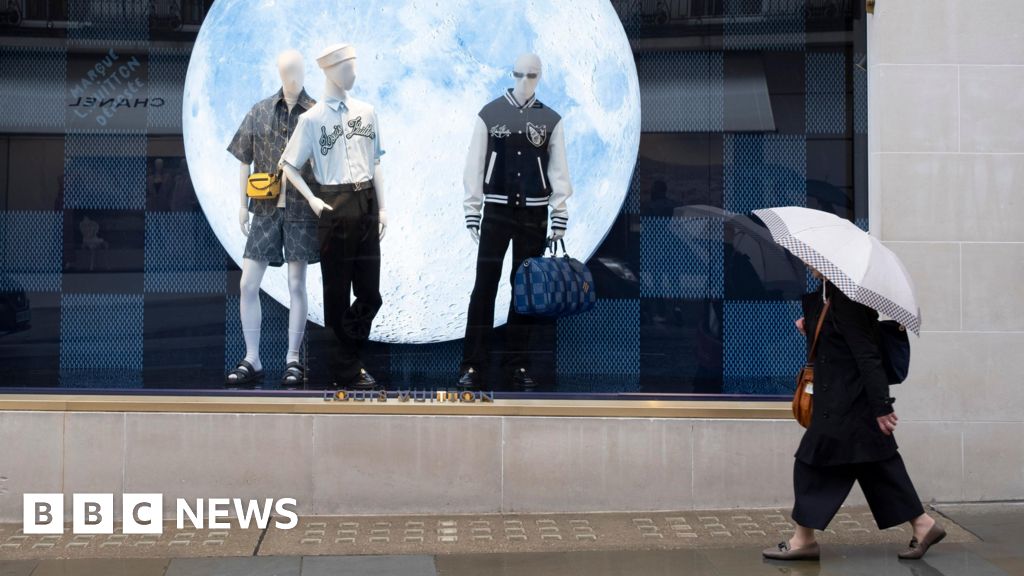Image source, Getty Images
Retail sales fell by much more than expected in April as heavy rain kept shoppers at home.
Sales volumes fell by 2.3% from the month before. Analysts had expected a drop of about 0.5%.
Clothing retailers, sports equipment, games and toys stores, and furniture stores all did particularly badly as poor weather reduced footfall, the Office for National Statistics (ONS) said.
March’s figure was also revised down to show a 0.2% fall from February, whereas previously sales had been estimated as flat.
April saw storms and heavy rainfall, with several flood warnings issued across the UK.
Online sales, which are usually less affected by bad weather, also fell 1.2% on the month.
Although the ONS says sales figures are seasonally adjusted, last year Easter fell in April and this year it was in March, which sometimes is not fully allowed for.
“It didn’t help that Easter came early and all those tasty chocolate eggs and family feasts were totted up in the previous month’s numbers, but even then, March’s flatlining sales were revised down,” said Danni Hewson, head of financial analysis at stockbroker AJ Bell.
“The shock of the last few years on personal finances has made many wary. People have done without and can continue to make do if it means they can create a little pot of emergency cash to help keep their feet dry.”
More broadly, there was a 0.7% rise in the three months to April 2024 when compared with the three months to January 2024, but the ONS said this was mainly because of an exceptionally poor December 2023.
Focus on value
With people sticking close to home in the wet weather, fuel sales dropped 4.9% in April, the biggest monthly fall since October 2021.
Meanwhile, a separate survey by research company GfK suggested consumer confidence is at its highest level for two years.
However, GfK’s index, which measures how people view their personal finances and the broader economic situation, remains in negative territory.
“Though consumer confidence continues to rise, many remain apprehensive and are not yet loosening their purse strings, especially on non-essential items and goods such as clothing and footwear,” said Oliver Vernon-Harcourt, head of retail at Deloitte.
“Consumers are focused on value, with the likes of own-label food remaining resilient.
“Overall, this is a clear sign that, despite inflation easing, retailers’ road to recovery will require them to continue to invest into product ranges that target consumers of all budgets.”

